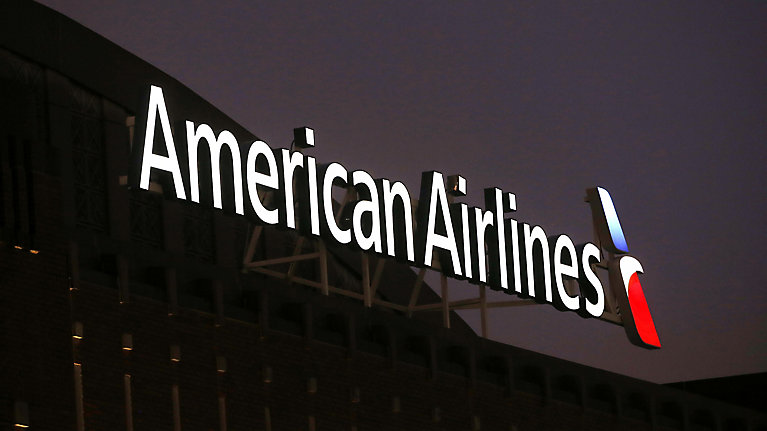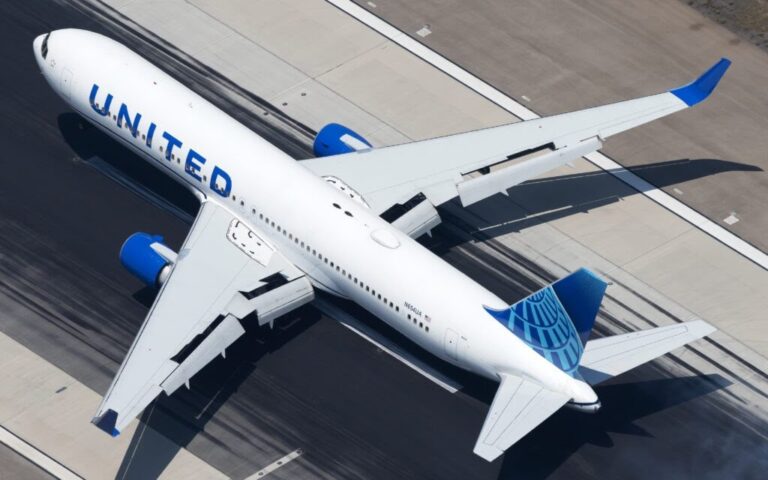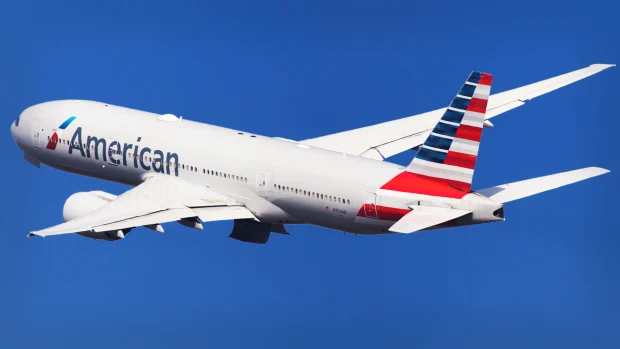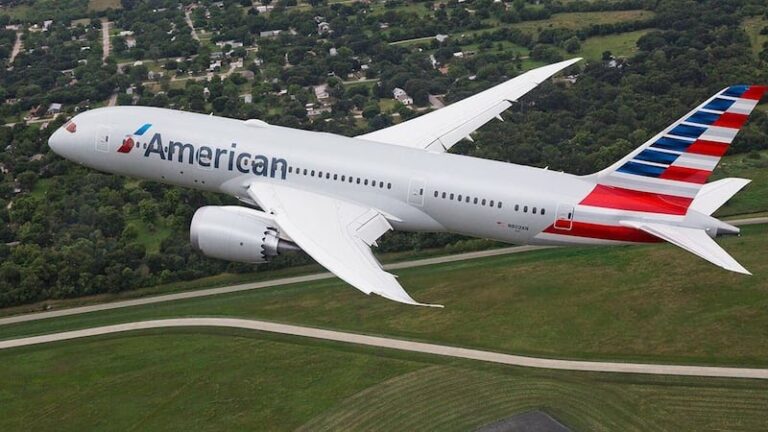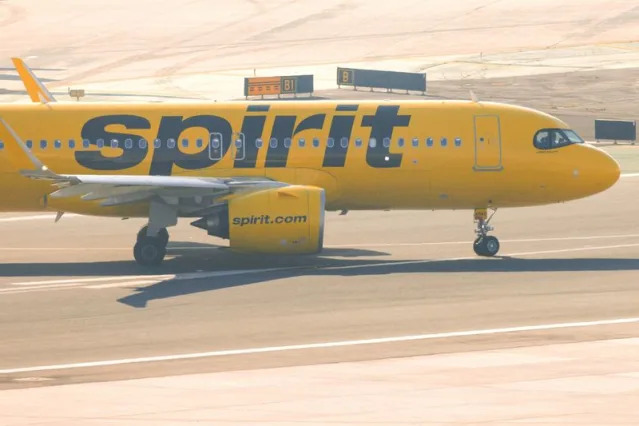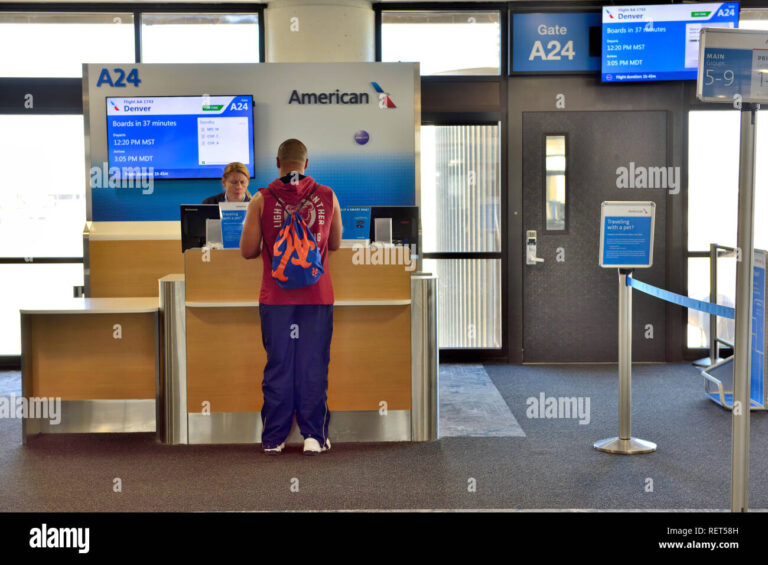American Airlines is raising bag fees and changing how customers earn frequent-flyer points
DALLAS — American Airlines is raising the cost of checking bags and it is making other changes to push customers to buy tickets directly from the airline if they want to earn frequent-flyer points.
The airline said Tuesday that checking a bag on a domestic flight will rise from $30 now to $35 online and $40 if purchased at the airport. The fee for a second checked bag will rise from $40 to $45 both online and at the airport.
American last raised bag fees in 2018.
American, based in Fort Worth, Texas, introduced bag fees in 2008 — $15 back then — to cope with the rising cost of jet fuel. Since then, they have become a steady revenue source for most major U.S. carriers. American easily led the industry by raising $1.4 billion in bag fees in 2022, the last year for which U.S. Transportation Department figures are available.
The airline is also raising bag fees by $5 for short international flights including those to Canada, Mexico and the Caribbean — now $35 for the first bag and $45 for the second.
The airline will generally allow customers to check at least one bag free if they hold elite status in American’s loyalty program, buy a premium-class ticket or use an American-branded credit card.
American will give a break to customers whose bags are slightly overweight or oversized. Instead of being hit with the full extra fee — ranging from $100 to $650 — graduated fees will start at $30 for bags that are no more than 3 pounds or three linear inches over the limits.
And it is cutting the cost of transferring points between frequent-flyer accounts.
At the same time, American announced that starting with tickets issued on May 1, customers will have to buy tickets directly from the airline or its partner carriers or from preferred online travel agencies if they want to earn points in its AAdvantage loyalty program. The airline said it will list the preferred travel agencies in late April. Corporate travelers won’t be affected.
About 60% of American’s ticket sales are already made directly through the airline, said Scott Chandler, vice president of revenue management.
The changes are part of a long shift by airlines away from using travel agents — and paying them commissions — and bringing ticket sales in-house.
“The old way of booking a ticket relied on agents having a ton of experience and understanding product attributes,” Chandler said in an interview. “The old technology doesn’t let us explain things very well, and it is a little more confusing for customers when we introduce new products.”
American Airlines has announced several significant changes to its fee structure and loyalty program, aimed at increasing direct ticket sales and enhancing revenue from ancillary services. These adjustments include raising the cost of checked baggage and introducing measures that encourage customers to purchase tickets directly from the airline if they wish to earn frequent-flyer points.
Effective soon, the fee for checking a bag on a domestic flight will increase from $30 to $35 if purchased online and to $40 if purchased at the airport. Additionally, the cost for a second checked bag will rise from $40 to $45, applicable both online and at the airport. This is the first time American Airlines has increased its baggage fees since 2018, reflecting a broader industry trend towards maximizing ancillary revenue. The airline, headquartered in Fort Worth, Texas, initially introduced baggage fees in 2008, starting at $15 per bag, to mitigate the escalating costs of jet fuel. Over time, these fees have become a significant source of revenue for major U.S. carriers. In 2022, American Airlines led the industry by generating $1.4 billion from baggage fees alone, according to figures from the U.S. Department of Transportation.
The new fee structure also impacts short international flights, including routes to Canada, Mexico, and the Caribbean. The cost of checking a bag on these flights will increase by $5, bringing the fee to $35 for the first bag and $45 for the second. Despite these increases, American Airlines will continue to allow customers with elite status in its loyalty program, those who purchase premium-class tickets, and those using American-branded credit cards to check at least one bag for free.
In a move to mitigate the burden on customers whose luggage slightly exceeds weight or size limits, American Airlines is introducing a graduated fee system. Rather than imposing the full extra fee, which can range from $100 to $650 depending on the extent of the excess, the airline will implement incremental fees starting at $30 for bags that are no more than 3 pounds or three linear inches over the limits. This adjustment aims to provide a more reasonable and customer-friendly approach to handling overweight and oversized baggage.
Additionally, American Airlines is reducing the cost of transferring points between frequent-flyer accounts. This change is part of the airline’s broader strategy to enhance the value and usability of its AAdvantage loyalty program for its customers.
Significantly, American Airlines is also revising the way customers earn frequent-flyer points. Starting with tickets issued on May 1, customers will need to purchase tickets directly from the airline, its partner carriers, or from preferred online travel agencies to earn points in the AAdvantage program. The airline plans to publish a list of preferred travel agencies in late April. Notably, corporate travelers will not be affected by this change. Currently, about 60% of American Airlines’ ticket sales are made directly through the airline, according to Scott Chandler, the vice president of revenue management.
These changes are part of a broader industry shift away from relying on travel agents and paying them commissions, towards bringing ticket sales in-house. Chandler explained that the traditional model of booking tickets required agents to have extensive experience and a deep understanding of various product attributes. However, the old technology used in this process often failed to effectively communicate these attributes to customers, making it more challenging for them to understand and choose new products. By moving ticket sales directly through the airline, American Airlines aims to streamline the booking process, making it more straightforward and transparent for customers.
This strategy aligns with the broader trends in the airline industry, where carriers are increasingly focusing on direct engagement with customers to enhance loyalty and maximize revenue. By driving more ticket sales through its own channels, American Airlines can better manage customer relationships, offer tailored promotions, and provide a more cohesive customer experience. Moreover, direct sales allow the airline to retain a larger share of the revenue, avoiding the commissions typically paid to travel agents.
The decision to raise baggage fees comes at a time when airlines are grappling with fluctuating operational costs and the need to maintain profitability. Ancillary fees, such as those for checked baggage, have become a crucial component of airlines’ revenue streams. These fees help offset costs and provide a buffer against volatile fuel prices and other operational expenses. For American Airlines, which has a large domestic and international network, optimizing ancillary revenue is essential to maintaining its competitive edge and financial health.
The impact of these changes on passengers is mixed. While some travelers may be deterred by the higher baggage fees, the introduction of graduated fees for slightly overweight or oversized bags offers a more customer-friendly approach. Moreover, the emphasis on direct ticket sales and the
